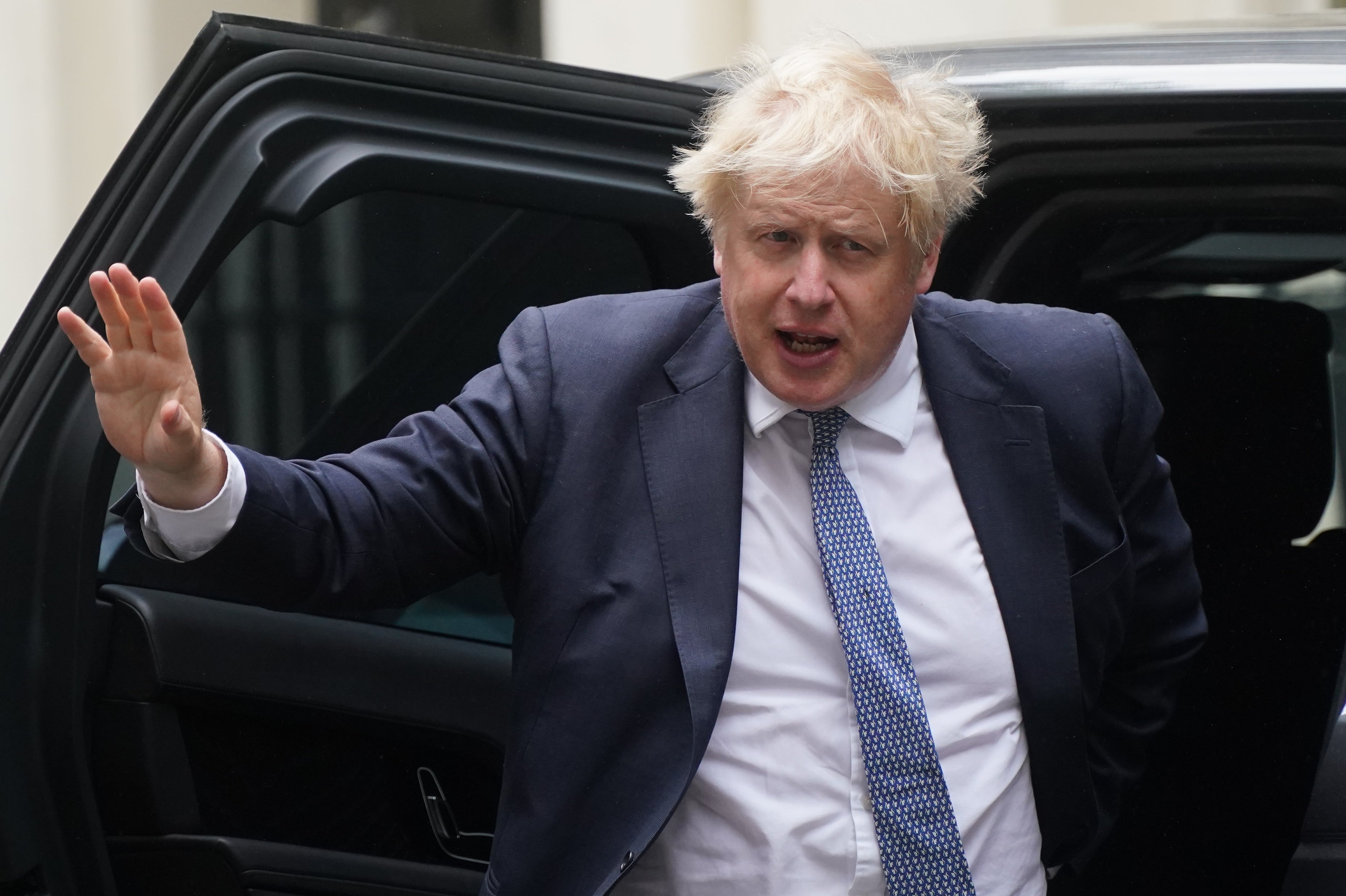Is the cabinet fully behind Boris Johnson on the Sue Gray report?
On a generous reading of the social media activity of the prime minister’s top team right now, he’d count himself lucky to rely on about half of them, argues Sean O'Grady


The habit of cabinet ministers seemingly “copying and pasting” similar tweets on a given topic contains its own nerdy attractions, though admittedly on the more speculative end of political analysis – just a bit of fun, as Peter Snow might say.
At first glance, they do indeed look to be limited variations on a theme – a random mix of meaningless phrases and tired slogans – but sometimes there is a telling tweak, a certain emphasis, or perhaps the tweet simply doesn’t appear.
The last time Boris Johnson had a leadership crisis, when Partygate emerged a few months ago, much attention was afforded to the protracted silence of certain of his rivals, notably Rishi Sunak, until the appearance of a formulaic – and to me, insincere – expression of faith in Johnson’s leadership. It persuaded nobody.
The Sue Gray report yields fresh Twitter-based intrigue. Discounting Johnson himself, there are 30 members of the cabinet (or ministers “attending cabinet” as and when needed). Of those, a few, such as George Eustice, Alister Jack and Baroness Evans, eschew Twitter entirely, hiding behind their departmental accounts. Of the rest, a number posted tweets containing various permutations of “the prime minister has apologised”, along with words and phrases such as “mistakes”, “lessons”, “getting on with the job”, “delivery” or “delivering”, “cost of living”, and “Ukraine”.
They’re quite samey, as you’d expect. Here’s the business secretary, Kwasi Kwarteng, for example: “The Met investigation has concluded and Sue Gray has published her final report. The PM has accepted full responsibility and apologised. Lessons have been learned. We now need to back the PM to address the challenges we are facing, and get on with the job we were elected to do.”
Not so very different from Alok Sharma, president of Cop26, who tweeted: “Sue Gray’s report describes unacceptable behaviour when households were making enormous sacrifices”; “@BorisJohnson has apologised unreservedly and implemented changes”; “With serious challenges at home & abroad, the PM has my full confidence and is the best person to deliver for [image of union jack]”.
Yet only the tweets from Kwarteng, Sharma, Liz Truss (improbably), Michael Gove (technically a quote-tweet of Simon Clarke), chief whip Chris Heaton-Harris, leader of the house Mark Spencer, and the comically effusive Michael Ellis (who even included a picture of himself with Johnson) actually contained the key “strong phrase” about having full confidence in the PM, backing Boris, or similar. So only about a quarter of the top team could be bothered to declare personal fealty.
We can probably add Nadine Dorries to the list of nominal loyalists, even though, in her thread of three tweets, she didn’t actually get round to saying that Johnson was the right man for the job. However, her devotion to him is well documented.
Some surprising complete omissions from the chorus of cliché were Jacob Rees-Mogg, Priti Patel, Steve Brady (chief of staff), Suella Braverman (supposedly a less partisan law officer, and these were legal matters), and Kit Malthouse, all of whom have yet to tweet about Sue Gray. Maybe we need not read too much into all of those; the replies can be disheartening, after all, and there are other channels available. The exception is probably the defence secretary, Ben Wallace, whose silence on social media post-Gray is significant and deafening (even allowing that he’s a busy man; we’re talking about a stricken PM here).
The more guileful responses were the rather half-hearted, the cleverly phrased, and the gratuitously curt expressions of support from various possible rivals and their respective supporters. Sunak’s, for example, was particularly tepid:
“I’m grateful to Sue Gray for her report and I sincerely repeat my apologies for the event I received a fine for. The prime minister has apologised and lessons have been learned. I hope we can now move forward and continue delivering for the British people.”
Others who seemed pointedly to avoid backing Johnson, preferring to emphasise the now urgent need to “deliver” (hint, hint), include the ambitious Nadhim Zahawi, Sajid Javid, Dominic Raab and, less predictably, Oliver Dowden (party chair), along with Therese Coffey and Anne-Marie Trevelyan.
As I say, it’s not scientific, but it may be suggestive. If, or when, it came to it, the cabinet – rather than the 1922 Committee – might have to face up to the unpleasant task of telling Johnson the game was up. This, after all, is what happened in 1990, when the then PM Margaret Thatcher was defenestrated by her own cabinet – “treachery with a smile on its face”, as she grimly recalled.
On a generous reading of the social media activity of Johnson’s top team right now, he’d count himself lucky to rely on about half of them, and probably no more than a half-dozen ultra-loyal diehards. The cabinet Twitter offensive has thus suggested weakness, rather than strength, in the support for the prime minister among those who work with him most closely. You do get the impression that few are actually close to him.
Subscribe to Independent Premium to bookmark this article
Want to bookmark your favourite articles and stories to read or reference later? Start your Independent Premium subscription today.
Join our commenting forum
Join thought-provoking conversations, follow other Independent readers and see their replies
Comments